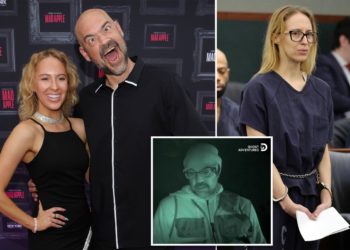Federal law enforcement recently announced a $14-billion fraud takedown — the largest healthcare fraud action in U.S. history, involving many crimes orchestrated by foreign nationals. Every American taxpayer should be alarmed not just because of the dollars at stake, but also because it reveals how vulnerable Medicare and Medicaid have become to large-scale, international exploitation. The Trump administration is changing that — and the American people can help.
Fraud is a national problem, but it starts locally. Drive around certain neighborhoods in Los Angeles and you’ll pass what appear to be empty office buildings, which unbeknownst to neighbors could serve as hubs of criminal activity. There are more than 1,000 potentially fraudulent hospice operations identified in Los Angeles.
Many are nothing more than mailing addresses, used as fronts to siphon off Medicare funds for services never provided. These fake hospices — often backed by international operators — exploit regulatory loopholes and overwhelmed state oversight, illustrating how fraud has gone from isolated abuse to industrial-scale theft.
One recent case involved a $17-million Medicare hospice fraud, in which an individual pleaded guilty to healthcare fraud, aggravated identity theft and money laundering. The scheme involved running shell hospice companies and submitting false Medicare claims for unnecessary services, including for people who were not terminally ill and never received care.
In some cases, they took this even further by causing harm to the patients directly. As part of the recent takedown, charges were brought against individuals for causing more than $1.2 billion in false and fraudulent claims to be submitted to Medicare and other health insurance programs for expensive, medically unnecessary wound grafts that were applied to elderly and terminally ill patients who were receiving hospice care — potentially causing needless suffering in addition to waste.
With a projected expenditure of more than $900 billion this year, Medicare is one of the largest and most attractive targets for financial fraud in the world. The recent takedown made clear that foreign actors are not just randomly gaming the system: They are strategically infiltrating it using fake providers, ghost patients, shell companies and offshore money laundering schemes that prey on vulnerable seniors and take advantage of outdated billing systems at the Centers for Medicare & Medicaid Services.
Many of these scams relied on the same digital platforms that expanded during the pandemic — telemedicine portals, remote behavioral health services and online provider enrollment portals. The ease of digital access, combined with loose identity verification, created an irresistible entry point for sophisticated fraud networks.
The Medicare Trust Fund is predicted to run out of funds by 2033. The system can’t afford to underwrite international crime. Every fraudulent claim paid is money stolen from American seniors, working families and future healthcare investments. Yet the government’s fraud detection systems have been historically reactive — “pay and chase” rather than detecting attempts in real time and preventing them from succeeding. That posture is no longer tenable.
The Centers for Medicare & Medicaid Services is closing the door to what has become a global raid on one of America’s most important public trust funds. This spring, we rolled out a war room — the Fraud Defense Operations Center — a team of experts from across the agency using artificial intelligence and other cutting-edge technology to identify fraudulent activity before we pay the bills.
But the government cannot combat this problem alone. First and foremost, seniors should protect themselves and their Medicare beneficiary numbers. Medicare will never call to ask for your Medicare number or any personally identifiable information.
In the case of the sham hospices, bad actors will try to get seniors to sign papers agreeing that they have requested hospice services for themselves or a loved one. Never sign these types of papers, as by doing so you are giving away your future Medicare rights to those services when you or a loved one actually need them.
Second, we need others both inside and outside the healthcare system to chime in — by contacting the 24-hour Medicare call center (1-800-MEDICARE) or the tip line of the Department of Health and Human Services Office of the Inspector General (1-800-448-8477). The public can learn more about what to watch for at medicare.gov/fraud.
The $14 billion uncovered recently isn’t just a staggering number — it’s a symptom of systemic vulnerability. It reveals how far behind our safeguards have fallen and how rapidly bad actors are adapting. That is why the Centers for Medicare & Medicaid Services has made crushing fraud one of our top objectives. We’re locking that door — before another $14 billion walks out of it.
Dr. Mehmet Oz is the administrator of the Centers for Medicare & Medicaid Services. Kim Brandt is the deputy administrator and chief operating officer.
The post Contributor: Medicare fraud has gone global. It’ll take a nationwide effort to stop it appeared first on Los Angeles Times.




